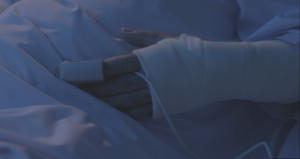
Salamatak – Early Detection
The field of medicine has evolved tremendously over the years. Through advanced technology, we are now able to know intricate details about what goes on inside our bodies. This includes our blood, organs, and most importantly, any potential tumors forming. If only we took advantage of these technologies and got tested frequently so we can detect any potential danger before it escalates.
Cancer Stages
Tumors are abnormal masses of tissue that form when cells grow and divide more than they should, or do not die when they should and can be either benign or cancerous. Cancer forms over four stages:
- Stage 0: At this stage, the cancer is still located in the place it started and has not spread to nearby tissues. This stage is highly curable by surgically removing the entire tumor.
- Stage 1: Cancer cells at this stage have not expanded into other parts of the body, however patients may begin to experience some symptoms.
- Stage 2: At this stage, cancer cells begin to grow and expand to other body organs.
- Stage 3: This stage is considered the most fatal as the cancer has spread to other organs and parts of the body.
There is no specific pace for tumor growth as it tends to vary from case to case. The growth rate can depend on any of the following factors:
- Early detection and treatment
- Tumor type and location
- The patient’s age
- The treatment plan
Common Inquiries
- “Do I need to get tested even if I don’t experience any symptoms?”
The urgency for regular checkup varies from one person to the other. You might need to get tested if your family has a history of cancer. Certain cancers require testing at specific ages such as 35 for Breast Cancer and over 50 for Colon Cancer.
- “I would like to get tested but I do not feel comfortable getting tested in local clinics”
Most cancer detection tests require minimal equipment and do not require advanced technology to process the data. Most local clinics follow international protocols for testing and thus their testing results are accurate.
- “Is it possible for my test results to get mixed up with other patients?”
Test results are linked to your personal information such as ID Number, phone number, and birth date therefore the chances for a mix up to occur are extremely rare.
- “I showed no symptoms, but my test results indicated I have a tumor, how can that be?”
Early detection can help you identify any potential cancerous cells even before they visibly form. Consider yourself fortunate for detecting your cancer before any symptoms were apparent.
- “I don’t want to get a mammogram I heard it was painful and could cause cancer”
Mammograms do not cause breast cancer as they omit very little X-rays. The compression of the test may cause some pain, but the pain tolerance levels differ from one woman to another. Some women may feel pain during the procedure, and others may not feel anything at all.
- “Is it necessary to share private information such as menstrual cycles or birth control?”
This information is necessary to allow your doctor to analyze your data and make the correct assessment of your test results.
- “A relative of mine has cancer, is it possible for me to have it?”
Cancer in a close relative, like a parent or sibling (brother or sister), is a bigger cause for concern than cancer in a more distant relative. Even if the cancer was from a gene mutation, the chance of it passing on to you gets lower with more distant relatives.
- “Is it possible for test results to be inaccurate?”
There is always a chance for mistakes, however this is quite rare for early detection tests as many samples get retested and checked by many specialists before making the final assessment.
- “I want to get tested but I don’t want to use my real identity”.
Regardless of the results, having your medical information linked to your identity is important and can save your life in cases of accidents or emergencies. Using fake or stolen identities is considered a serious crime that is punishable by law.
- “I was told I was at risk for developing cancer, but I am healthy and refuse to believe it”
If you fit one of the criteria for cancer factors you should get checked even if you feel no symptoms especially since actual symptoms could only appear in later stages.
Watch More


Salamatak – Osteoporosis

Salamatak – Hollywood Smile

Salamatak – Children’s Safety

Salamatak – Fastest Way to Lose Weight

Salamatak – Seasonal Flu Vaccine

Salamatak – Aids

Salamatak – First Aid

Salamatak – The Musculoskeletal System

Salamatak – Organ Donation

Salamatak – Seniors

Salamatak – Nutritional Supplements
Sharing is Caring
Salamatak is an awareness program with an authentic Arab spirit that provides health advice and guidance in line with the standards of international health awareness organizations. It aims to elevate society through health and safety awareness in a spontaneous way, and targets healthy people in particular and society in general.
© 2020 All Rights Reserved – Salamatak
